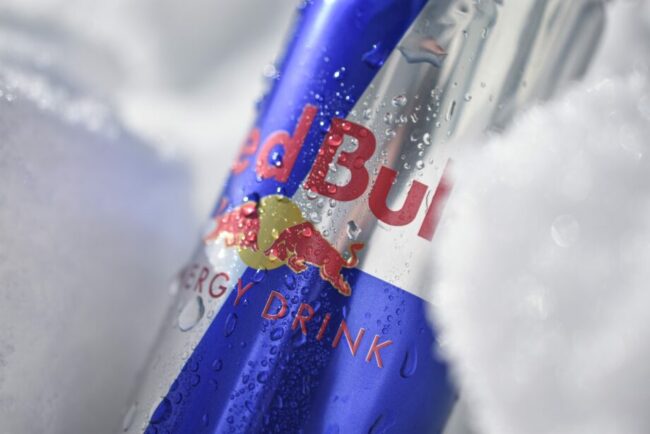If you find yourself reaching for an energy boost in the middle of the day, you’re likely familiar with Red Bull. This popular energy drink promises to give you wings, but how long do those wings actually last? In this comprehensive guide, we explore not only the longevity of Red Bull’s effects but also dive into its ingredients, how it works, and the potential health risks. So, let’s get started.
Table Of Contents
−- The Lifespan of Red Bull’s Effects
- What Is Red Bull?
- What’s Inside a Can of Red Bull?
- The Science Behind Red Bull’s Effects
- Is Red Bull Harmful?
- Pros and Cons of Drinking Red Bull
- What Happens if You Consume Red Bull Daily?
- Daily Red Bull Intake Recommendations
- Factors That Affect Red Bull Metabolism
- How to Get Red Bull Out of Your System
- Conclusion
The Lifespan of Red Bull’s Effects
After downing a can of Red Bull, you can expect its effects to last for around 5 hours, thanks to its half-life. This means that it will take about 5 hours for the caffeine and sugar levels to reduce to half their initial amounts. Additionally, a sealed Red Bull can has a shelf life of 18-24 months, and once opened, it’s best consumed within 2-4 days.

What Is Red Bull?
Red Bull is more than just a catchy name; it’s a brand of energy drink produced by the Austrian company Red Bull GmbH, which was founded back in 1987. As of today, Red Bull holds a leading position in the global energy drink market.
What’s Inside a Can of Red Bull?
To understand the longevity of Red Bull’s effects, it’s crucial to know what’s in it. Red Bull contains around 11.3 mg of sugar and carbs per 100 mL. However, it’s not just a sugary beverage; it also contains various vitamins and minerals. These include:
- Niacin (B3): 8.0 MG, or 53% of the daily recommended intake
- Pantothenic acid (Vitamin B5): 2.0 MG, or 40%
- Vitamin B6: 154%
- Vitamin B12: 83%
Additional ingredients like salts, taurine, and most notably, caffeine, work together to keep you energized.
The Science Behind Red Bull’s Effects
Red Bull’s slogan may promise wings, but the real magic lies in its composition. Sugar serves as the primary energy source for your body, and Red Bull has plenty of it. Secondly, it’s rich in B-vitamins that help speed up your metabolism and optimize energy production. Lastly, a 12 fl oz can contains 111 mg of caffeine, which acts as a stimulant to keep you alert and energetic for several hours.
Is Red Bull Harmful?
While Red Bull may promise a burst of energy, it’s important to use it responsibly. Consuming it regularly may lead to potential health issues like nausea, high blood pressure, teeth erosion, sleep disorders, and increased levels of stress and anxiety.
Pros and Cons of Drinking Red Bull
Pros
- Quick and effective energy boost
- Convenient and easy to consume
- May improve mood and focus
Cons
- High sugar content, with a single can containing up to 10 teaspoons
- Potential to cause dehydration, especially when consumed before exercise
- Elevated blood pressure and subsequent energy crashes
What Happens if You Consume Red Bull Daily?
While Red Bull advocates moderate consumption, some people drink it daily without apparent issues. However, health experts caution that such habits may increase the risk of developing Type 2 Diabetes and caffeine overdose due to its high sugar and caffeine content.
Daily Red Bull Intake Recommendations
Although you could technically drink up to five cans of Red Bull in a day based on its 80mg caffeine content, it’s better to limit yourself to one or two cans. Remember that other sources of caffeine, like chocolate and coffee, contribute to your daily caffeine intake as well.
Factors That Affect Red Bull Metabolism
The impact of Red Bull can vary based on several factors such as age, weight, gender, and medication. Older individuals might find that the effects of Red Bull last longer, while heavier individuals may require more for the same impact. Likewise, men may feel the effects quicker but for a shorter duration compared to women.
How to Get Red Bull Out of Your System
If you’ve had too much Red Bull and need to ‘detox,’ consider exercising to burn off the energy or drinking plenty of water to help manage its effects. You could also steer clear of high-fiber foods that slow caffeine absorption.
Conclusion
Red Bull has carved a niche for itself as an energy booster, but it’s essential to consume it responsibly. Understanding its ingredients, how it impacts your body, and the potential health risks can help you make an informed decision. So the next time you reach for that Red Bull can, you’ll know exactly what you’re getting into.

Editorial Staff
Our writers, editors, content managers, and SEO specialist. We all take part in crafting amazing articles. We spend hours ensuring that each article is based on facts, researched, and thorough. You'll never want to click the back button to look for more answers other than here!
